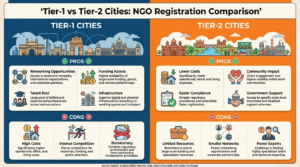As societal norms and economic realities continue to evolve, the concept of alimony, also known as spousal support, has come under increasing scrutiny in Newport Beach and throughout California. Alimony reform has become a hot-button issue, with many advocates calling for changes to the way spousal support is awarded and calculated in modern divorces. For individuals handling the complex landscape of divorce in Newport Beach, understanding the current state of alimony laws and the potential impact of reform efforts is crucial.
Working with a skilled Newport Beach divorce attorney can provide invaluable guidance and advocacy throughout the divorce process, particularly regarding spousal support issues. An attorney can help individuals understand their rights and obligations, negotiate fair and equitable support agreements, and represent their interests in court if necessary.
The Purpose and History of Alimony
Alimony, or spousal support, is a legal obligation in which one spouse provides financial support to the other following a divorce. The original purpose of alimony was to ensure that the economically disadvantaged spouse, typically the wife, could maintain a standard of living similar to what they enjoyed during the marriage. This was particularly important in an era when women were less likely to work outside the home and had fewer opportunities for financial independence.
Over time, however, the concept of alimony has evolved to reflect changing gender roles and economic realities. With more women entering the workforce and achieving financial self-sufficiency, the notion of alimony as a lifelong entitlement has become increasingly scrutinized. Today, alimony is often seen as a temporary measure to help the lower-earning spouse transition to financial independence rather than a permanent source of support.
Types of Alimony in Newport Beach
In Newport Beach and throughout California, several types of alimony may be awarded in a divorce, depending on the case’s specific circumstances. These include:
- Temporary alimony: Also known as pendent lite support, temporary alimony is awarded during the divorce process to help the lower-earning spouse cover living expenses until a final support order is issued.
- Rehabilitative alimony: Rehabilitative alimony is designed to help the lower-earning spouse acquire the education, training, or work experience necessary to become self-supporting. This type of alimony is typically awarded for a specific period, with the expectation that the recipient will use the support to improve their earning capacity.
- Permanent alimony: In cases where the lower-earning spouse cannot become self-supporting due to age, health, or other factors, permanent alimony may be awarded. This type of alimony continues until the spouse’s death or the recipient’s remarriage.
- Reimbursement alimony: Reimbursement alimony is awarded to compensate one spouse for contributions to the other’s education, training, or career advancement during the marriage. This type of alimony is less common and is typically awarded in shorter marriages where one spouse sacrifices to support the other’s career goals.
The Push for Alimony Reform in California
In California, there is a significant movement advocating for changes in the alimony system, mainly due to concerns that the current system is outdated and unfair. The primary criticism is that there is a lack of consistency and predictability in alimony awards since judges have the discretionary power to make decisions, which often results in different outcomes. Furthermore, there is a strong push to redefine the duration of alimony payments, suggesting that support should be a temporary measure to assist the lower-earning spouse in achieving financial independence rather than a perpetual obligation.
The debate about alimony payments highlights the financial burden they place on payors, especially as they near retirement age. This can have a significant impact on their ability to retire comfortably. Advocates for reform argue that the current system does not reflect modern marriage dynamics, where dual-income households are more common and traditional gender roles in financial provision have changed.
Factors Considered in Alimony Determinations
In Newport Beach and throughout California, courts consider various factors when determining whether to award alimony and in what amount. These factors include:
- The length of the marriage: Generally, the longer the marriage, the more likely it is that alimony will be awarded.
- The earning capacity of each spouse: Courts will consider each spouse’s education, job skills, and employment history when assessing their ability to become self-supporting.
- The age and health of each spouse: Older spouses or those with health issues may be less likely to become self-supporting and may require longer-term or permanent alimony.
- The standard of living established during the marriage: Courts will consider the lifestyle enjoyed by the couple during the marriage when determining the appropriate level of alimony.
- The contributions of each spouse to the marriage: Courts will consider non-monetary contributions, such as homemaking and child-rearing when determining alimony.
- The tax consequences of alimony: Under current federal tax law, alimony payments are no longer tax-deductible for the payor or taxable income for the recipient, which can impact the amount and duration of support.
The Importance of Prenuptial and Postnuptial Agreements
Couples in Newport Beach who want to ensure their financial stability and avoid the uncertainty of court decisions on matters such as alimony and asset division should consider prenuptial and postnuptial agreements. These agreements allow partners to establish in advance how assets will be divided and support obligations will be handled in the event of a divorce. Prenuptial agreements are created before the wedding day, covering concerns such as property division, alimony, and inheritance.
Although prenuptial agreements were once considered unromantic, they have become more popular, particularly among people with substantial assets or who are getting married for the second time. These agreements can provide clarity and security to both parties and can help alleviate tensions in the event of a divorce. However, in California, prenuptial agreements must comply with strict legal requirements in order to be enforceable.
Alimony Modification and Termination
Even after an initial alimony order is issued in a Newport Beach divorce, circumstances may arise that require a modification or termination of support. Under California law, either party can request a modification of alimony if there has been a significant change in circumstances since the original order was issued.
Some common reasons for seeking an alimony modification include:
- The recipient spouse has experienced an increase in income or a decrease in expenses
- The payor spouse has experienced a decrease in income or an increase in expenses
- The recipient spouse has remarried or is cohabitating with a new partner
- The recipient spouse has failed to make reasonable efforts to become self-supporting
- The payor spouse has reached retirement age and wishes to modify or terminate support
Benefits of Hiring an Experienced Legal Representative
Divorce and alimony in Newport Beach can be overwhelming, especially with current discussions on alimony reform. A proficient Newport Beach divorce lawyer offers guidance, support, and representation. They clarify California alimony laws, strategize based on case merits, and handle procedural elements of the divorce.
A competent divorce attorney offers legal and emotional support, enabling clients to focus on healing and decision-making. Choose an experienced attorney with a successful track record in complex financial disputes, negotiation, and litigation for a confident and manageable divorce journey, paving the way for a hopeful start to life’s next chapter.





Be First to Comment